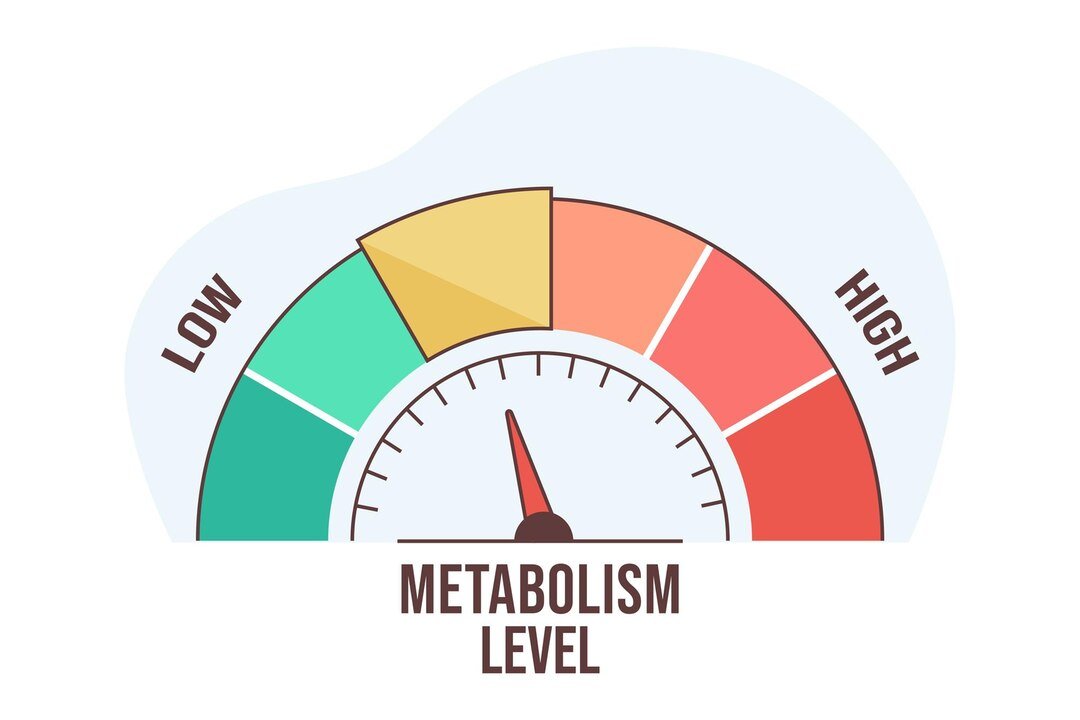Health & Fitness
300lbs to kg: Quick and Easy Conversion Guide
Want to convert 300 lbs to kg? This simple guide provides an easy conversion formula, helpful tips, and answers to common questions

Introduction 300lbs to kg
Have you ever found yourself staring at a number on a scale, wondering how much it would be in kilograms? If you’ve ever needed to convert 300lbs to kg, you’re not alone! Whether you’re tracking weight for fitness, cooking, or just plain curiosity, knowing how to switch between pounds and kilograms can be super handy.
This guide will walk you through the conversion, give you some practical examples, and answer common questions about weight conversion. Let’s dive in!
How to Convert 300lbs to kg?
Converting pounds to kilograms is easier than you think!
The Formula:
Weight in kg=Weight in lbs×0.453592\text{Weight in kg} = \text{Weight in lbs} \times 0.453592Weight in kg=Weight in lbs×0.453592
Applying the Formula:
300×0.453592=136.08 kg300 \times 0.453592 = 136.08 \text{ kg}300×0.453592=136.08 kg
So, 300 lbs is approximately 136.08 kg.
Why Convert Pounds to Kilograms?
Understanding weight conversion is useful for several reasons:
- Fitness & Health: Many countries use kilograms to measure body weight. If you’re following a workout or diet plan from an international source, knowing your weight in kg can help.
- Travel: Some airlines list baggage limits in kg. If you pack a suitcase weighing 300 lbs, you’ll need to know it’s 136 kg.
- Cooking & Baking: Some recipes list ingredient weights in kg, especially in European and Asian cookbooks.
- Science & Education: The metric system (which includes kilograms) is used worldwide in scientific research.
Common Weight Comparisons
To give you a better sense of what 300 lbs (136 kg) looks like, here are some real-world comparisons:
- Two average adult male deer 🦌
- A large refrigerator 🧊
- A baby elephant at birth 🐘
- A heavy-duty washing machine 🏠
Quick Conversion Table:
| Pounds (lbs) | Kilograms (kg) |
|---|---|
| 100 lbs | 45.36 kg |
| 200 lbs | 90.72 kg |
| 250 lbs | 113.40 kg |
| 300 lbs | 136.08 kg |
| 400 lbs | 181.44 kg |
| 500 lbs | 226.80 kg |
Need to convert a different weight? Just multiply by 0.453592! 😊
FAQs about Weight Conversion
1. Why do we use different weight units?
The United States primarily uses pounds, while most of the world follows the metric system and uses kilograms. The difference comes from historical measurement systems that evolved separately.
2. How can I quickly estimate pounds to kg without a calculator?
A quick trick is to divide pounds by 2 and subtract about 10%. For example:
- 300 lbs ÷ 2 = 150
- 150 – 10% (15) = 135 kg (very close to the exact 136.08 kg).
3. Is 1 lb exactly 0.45 kg?
Not exactly. 1 pound = 0.453592 kg. Rounding it to 0.45 kg is a good rough estimate but not 100% precise.
4. How much is 300 kg in pounds?
To convert kg to lbs, use: Weight in lbs=Weight in kg×2.20462\text{Weight in lbs} = \text{Weight in kg} \times 2.20462Weight in lbs=Weight in kg×2.20462 300×2.20462=661.39 lbs300 \times 2.20462 = 661.39 \text{ lbs}300×2.20462=661.39 lbs
5. Why is the metric system preferred for scientific use?
The metric system is more standardized, easy to convert, and used worldwide in science, medicine, and engineering.
Conclusion
Now you know that 300 lbs = 136.08 kg, and you’ve got the tools to convert any weight between pounds and kilograms! Whether you’re traveling, cooking, or just satisfying your curiosity, this simple conversion formula will always come in handy.
Health & Fitness
135 lbs to kg – Quick and Accurate Conversion Guide
Easily convert 135 lbs to kg with this comprehensive guide. Learn the formula, get conversion charts,

Understanding weight conversions is essential in today’s global world. Whether you’re tracking your fitness journey, following a recipe, or interpreting health metrics, knowing how to convert pounds to kilograms is crucial. In this article, we’ll focus on converting 135 lbs to kg and explore why this specific conversion is so commonly searched.
Why Convert 135 lbs to kg?
Pounds and kilograms are both units of weight. However, they are used in different parts of the world. The United States uses pounds (lbs), while most other countries follow the metric system, which uses kilograms (kg).
So, if you’ve just moved abroad or are comparing weight in an international context—be it travel, fitness, or medicine—converting 135 lbs to kg becomes necessary.
The Conversion Formula
The basic formula to convert pounds to kilograms is straightforward:
1 lb = 0.45359237 kg
Now, using this formula:
135 lbs × 0.45359237 = 61.235 kg
That means:
✅ 135 lbs equals approximately 61.24 kilograms.
Why Precision Matters
Although some might round off the result, precision is essential. Small differences can affect fitness goals, medical dosages, and shipping calculations. Thus, knowing the accurate number—61.24 kg—helps avoid confusion and maintains consistency across systems.
Quick Reference Conversion Chart
Here’s a small table for related weights:
| Pounds (lbs) | Kilograms (kg) |
|---|---|
| 130 lbs | 58.97 kg |
| 135 lbs | 61.24 kg |
| 140 lbs | 63.50 kg |
| 145 lbs | 65.77 kg |
| 150 lbs | 68.04 kg |
As you can see, conversions are not as intuitive as doubling or halving. Hence, charts or calculators are useful.
Where This Conversion is Commonly Used
Fitness and Health:
Many fitness apps and international trainers use kg. If your scale measures in pounds but your trainer refers to kilograms, being able to convert 135 lbs to kg ensures your communication is effective.
Medical Settings:
Medications and dosages often rely on body weight measured in kilograms. Especially when traveling or moving to another country, converting 135 lbs to kg can have clinical importance.
Travel and Baggage:
Airlines in Europe and Asia measure luggage weight in kilograms. Knowing that 135 lbs is 61.24 kg helps you stay under luggage weight limits and avoid extra charges.
Tips for Accurate Conversions
- Use a reliable calculator – Mobile apps or Google’s built-in calculator can give you instant results.
- Bookmark standard weights – If you commonly need to convert specific values like 135 lbs to kg, keeping a quick-access table saves time.
- Double-check critical numbers – For healthcare, sports, and education, even small rounding errors can lead to miscommunication.
How This Fits Into Broader SEO Trends
Many people search for very specific conversions like 135 lbs to kg because they want immediate, reliable answers. Creating content that provides:
- A direct answer,
- Additional value (charts, tips),
- And is easy to read and scannable,
is exactly what search engines like Google consider “high utility” content. This makes it more likely to rank well.
Conclusion
To summarize, 135 lbs is equal to 61.24 kg. This conversion might seem simple, but its real-world applications span across health, travel, and fitness. With global communication and lifestyles blending more than ever, understanding such conversions ensures clarity and confidence.
Health & Fitness
Convert 180lbs to kg – Quick and Accurate Weight Conversion Guide
Easily convert 180lbs to kg with our accurate guide. Understand the formula, tools, and real-life applications. Perfect for health,

Weight conversion is a crucial skill in today’s globalized world, especially when dealing with different measurement systems. If you’ve ever wondered how to convert 180lbs to kg, you’re not alone. In this guide, we’ll break down the process, offer practical examples, and explain why it’s essential to understand this conversion.
Understanding Pounds and Kilograms
Before we delve into the actual conversion, it’s important to understand what each unit represents. The pound (lbs) is a unit of mass commonly used in the United States and a few other countries. Conversely, the kilogram (kg) is part of the metric system, widely accepted across the globe, especially in scientific and medical contexts.
How to Convert 180lbs to kg
To convert pounds to kilograms, a simple formula is used:
1 pound = 0.453592 kilograms
Using this:
180 lbs × 0.453592 = 81.64656 kg
So, 180lbs equals approximately 81.65 kilograms.
This conversion is essential not only in academic settings but also in daily scenarios such as planning workouts, preparing international shipping, or interpreting medical data.
Why You Might Need to Convert 180lbs to kg
There are several scenarios where converting pounds to kilograms becomes necessary:
- Traveling Abroad: Many countries use kilograms on luggage scales.
- Health and Fitness: Most gym equipment and diet plans outside the U.S. use kilograms.
- Education and Science: Academic and research institutions prefer the metric system for consistency.
For these reasons, being able to quickly convert weight measurements can make life much easier and help avoid confusion.
Using Online Tools and Apps
While manual calculations work well, numerous online tools can automate the conversion. For instance:
- Google’s search bar can convert values instantly.
- Mobile apps like Unit Converter or MyFitnessPal feature built-in conversion tools.
These digital resources save time and ensure accuracy, especially when converting multiple values at once.
Quick Reference Table
| Pounds (lbs) | Kilograms (kg) |
|---|---|
| 170 | 77.11 |
| 180 | 81.65 |
| 190 | 86.18 |
| 200 | 90.72 |
The table above helps visualize how pounds increase in kilograms incrementally.
Common Questions About 180lbs to kg
Q: Is 180lbs a healthy weight?
A: That depends on your height and body composition. For someone who is 6 feet tall, 180lbs (81.65kg) may be considered healthy.
Q: Can I use an approximate value for quick conversions?
A: Yes. Multiply by 0.45 for a quick, rough estimate. That gives you 180 × 0.45 = 81 kg approximately.
Q: Why is the metric system preferred globally?
A: It’s standardized, easier to use in scientific calculations, and universally understood.
Conclusion
Understanding how to convert 180lbs to kg is not just a math skill—it’s a practical necessity. Whether you’re managing your health, traveling, or studying, this conversion equips you with knowledge that has real-world relevance. Instead of guessing or relying on others, now you can convert pounds to kilograms confidently and accurately.
So next time you see 180lbs, you’ll know—it’s 81.65 kg, give or take.
Health & Fitness
25lbs to kg: Easy Conversion Guide for Everyday Use
Curious about how much 25lbs to kg? Learn the exact conversion, simple tricks to remember it, and why weight conversions

Introduction: Why Convert Pounds to Kilograms?
Ever wondered how much 25lbs to kg? Whether you’re tracking your weight, lifting weights at the gym, or following an international recipe, knowing how to convert between pounds (lbs) and kilograms (kg) can be super useful.
In this guide, we’ll break it down for you in the simplest way possible. No complicated formulas—just an easy conversion that you can use anytime.
How to Convert 25 lbs to kg?
The simplest way to convert pounds to kilograms is to use this basic formula:
Formula:
1 pound (lb) = 0.453592 kilograms (kg)
Now, let’s apply this to our specific conversion:
25 lbs × 0.453592 = 11.34 kg
Answer:
✅ 25 lbs is equal to 11.34 kg
That’s it! You now have the exact weight in kilograms.
Why Do We Use Different Weight Units?
- Pounds (lbs): Commonly used in the United States and a few other countries.
- Kilograms (kg): The standard weight measurement in most of the world, including Europe and Asia.
If you ever travel or need to buy products that list weights in kilograms, knowing how to convert from pounds to kg is super helpful.
Quick Conversion Trick: Estimating Pounds to Kilograms
If you don’t have a calculator handy, use this simple trick:
🔹 Divide the number of pounds by 2, then subtract 10% of that result.
For 25 lbs:
- 25 ÷ 2 = 12.5
- 10% of 12.5 = 1.25
- 12.5 – 1.25 = 11.25 kg (very close to the exact 11.34 kg!)
This method gives you a close estimate that works in most everyday situations.
Common Weight Conversions for Reference
| Pounds (lbs) | Kilograms (kg) |
|---|---|
| 1 lb | 0.45 kg |
| 5 lbs | 2.27 kg |
| 10 lbs | 4.54 kg |
| 20 lbs | 9.07 kg |
| 25 lbs | 11.34 kg |
| 50 lbs | 22.68 kg |
| 100 lbs | 45.36 kg |
If you remember that 10 lbs is about 4.5 kg, you can quickly estimate larger numbers.
Where is This Conversion Useful?
- Health & Fitness: Gym weights, tracking body weight.
- Cooking & Baking: Some recipes list ingredient weights in different units.
- Travel: Luggage weight limits are often given in kg internationally.
- Shopping: Buying food items or other products with weight labels in kg.
Conclusion
Now you know that 25 lbs equals 11.34 kg, and you’ve got some easy tricks to estimate conversions. Whether you need it for the gym, kitchen, or travel, you’re now a weight conversion pro!
Need a quick conversion in the future? Just bookmark this page and use our simple table. 🚀
FAQs (Frequently Asked Questions)
1. How do I convert 25 lbs to kg without a calculator?
You can estimate by dividing by 2 and subtracting 10% of the result. For 25 lbs:
- 25 ÷ 2 = 12.5
- Subtract 1.25 → 11.25 kg (very close to the exact 11.34 kg)
2. Is 1 kg the same as 2 pounds?
Not exactly. 1 kg is equal to 2.2 lbs. So, if you need a rough estimate, doubling the kg amount gives a close idea in pounds.
3. Why does the US use pounds instead of kilograms?
The US follows the Imperial system, which includes pounds, inches, and miles, while most other countries use the Metric system, which includes kilograms, meters, and kilometers.
4. How much is 50 lbs in kg?
Using the formula: 50 × 0.453592 = 22.68 kg
5. What is the fastest way to convert pounds to kg?
Multiply by 0.45 or divide by 2.2 for a quick estimate.
-

 Education3 months ago
Education3 months agoUnderstanding How to Convert 74 cm to Inches Easily
-

 Education3 months ago
Education3 months ago32cm to Inches: A Simple Conversion Guide
-

 Lifestyle3 months ago
Lifestyle3 months agoHow to Win at play hiezcoinx2.x9 winning: Tips, Strategies
-

 TECHNOLOGY2 months ago
TECHNOLOGY2 months agoHow to Fix Error 7644fg.j-7doll Code – Step-by-Step
-

 Social Media2 months ago
Social Media2 months agoKnow About za-756v-nivallz – Features, Benefits, and Applications
-

 Fashion3 months ago
Fashion3 months agoWolfcontactsshops.com: Discover Premium Shopping Experience
-

 TECHNOLOGY2 months ago
TECHNOLOGY2 months agoUnderstanding the 084.0-h8po Model: A Deep Dive into Its Applications and Impact
-

 TECHNOLOGY2 months ago
TECHNOLOGY2 months agoHow to Get VH54S.5PH6: A Step-by-Step Guide
